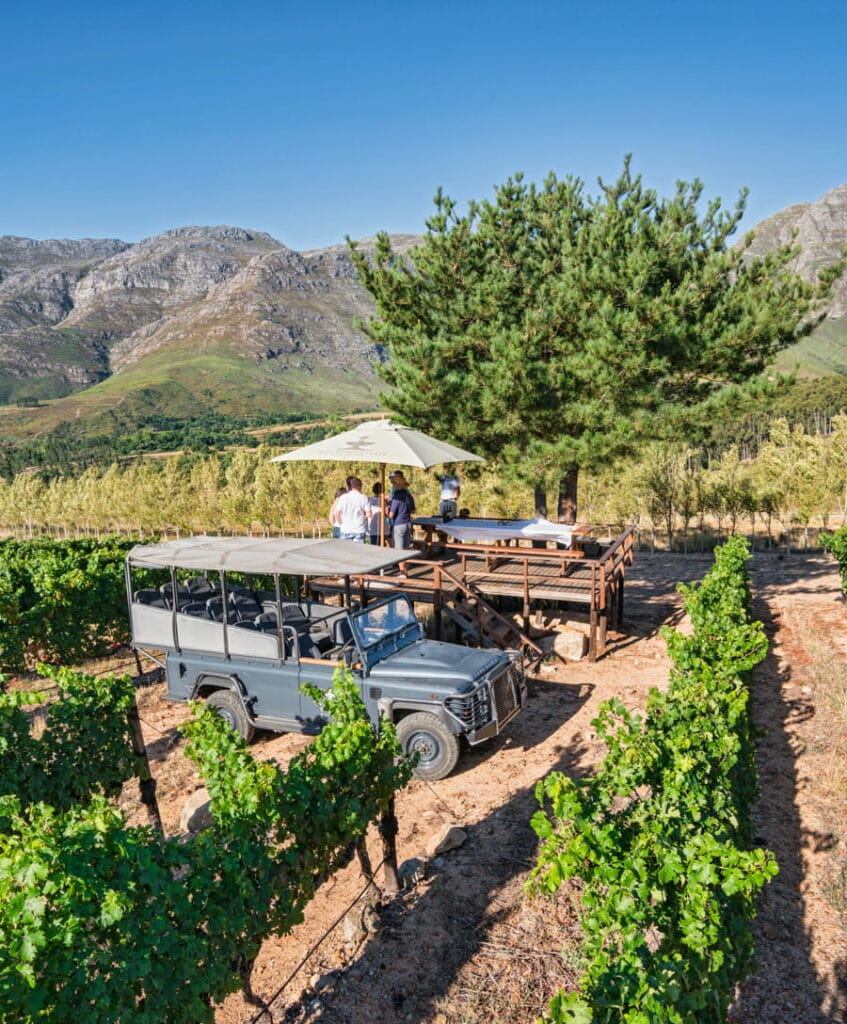With over 140 wine farms to explore around Cape Town, it can be a daunting task figuring out which ones to visit - especially if you only have a few days in Cape Town and you want to maximize your time and experiences. Here are some of our favourite wine farms and the reasons why we like taking you there.
Established in 1685 by Simon van der Stel, Groot Constantia is the oldest wine-producing estate in South Africa. After years of loyal service, as the first Dutch governor of the Cape Colony, Simon chose a piece of land behind Table Mountain for its wine-growing potential and magnificent scenery. Constantia is Latin for steadfastness, and this has echoed in the history of the wine farm as well its award-winning wines. Famous for their cheerful Blanc de Noir and complex Chardonnay, one can’t help but taste the centuries of craft and workmanship that goes into their wines. From wine tastings and world-class cuisines to South African art and the wine museum, there’s something to spark everyone’s interest.
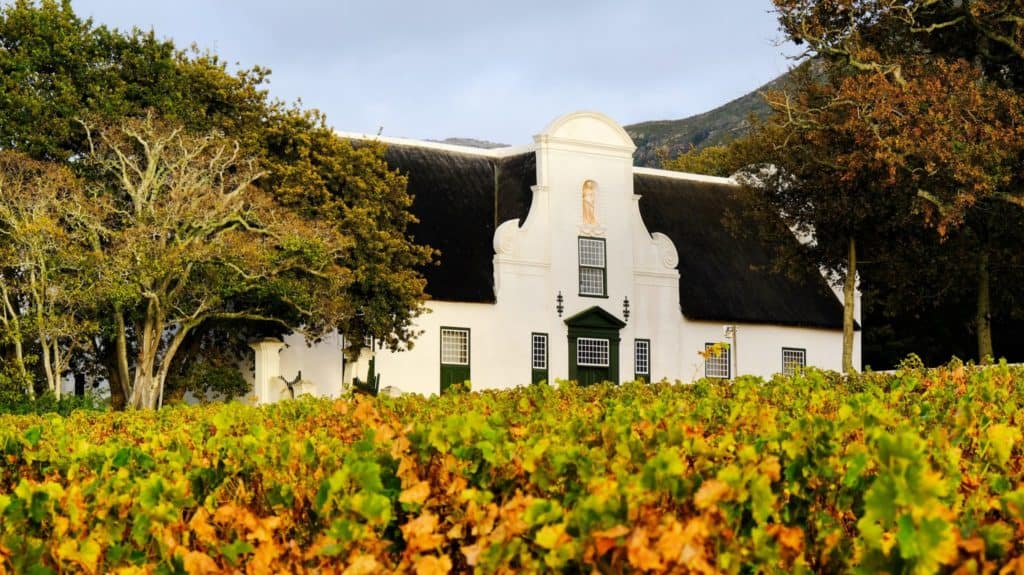
Founded in 1991 by the Armstrong family, Haut Espoir (meaning “High Hope”), is one of the younger farms in the Franschhoek region. Nestled far up in the Franschhoek valley, Haut Espoir has 23 hectares of land, of which 8 hectares are planted with vines. The remainder of the land is dedicated to fynbos restoration, a riverine ecosystem, olive groves, and a vegetable garden. Haut Espoir has been transitioning to Biodynamics since 2011 and focus on minimal impact on the environment with their viticultural practices. Rob Armstrong, the man behind the entire operation, is an extremely warm and welcoming person and he has a wealth of knowledge in fynbos and winemaking. An experience with Rob at Haut Espoir will see you strolling through the fynbos, the vineyards, and wine cellar before indulging into a fruitful conversation and a few glasses of his fine wine.
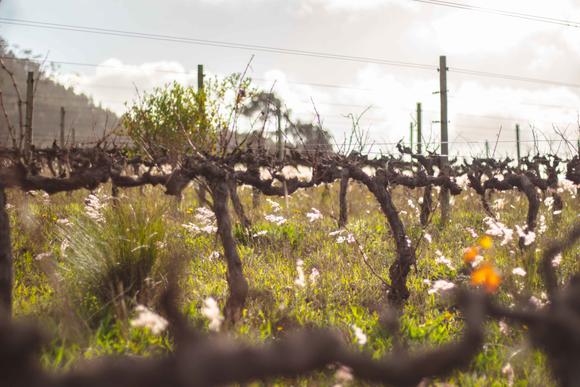
Babylonstoren is one of the oldest Cape Dutch farms in South Africa and has a history dating as far back as 1692. World-renowned for their craft and skills in organic gardening, Babylonstoren looked to the past for inspiration, taking its cue from the Company’s Garden of Cape Town which supplied passing ships to the Cape with food in the 1600s. All of the more than 300 varieties of plants in the garden are edible or have medicinal value, with everything from blood oranges and asparagus, to mushrooms and persimmons supplying the farm’s two restaurants: Babel and the Greenhouse. As such, the garden’s ever-changing tapestry and rich bounty of produce informs every aspect of Babylonstoren. The whitewashed walls of thick stone or primitive brick, with ornate gables and thatched roofs, truly make you feel like your an early explorer.
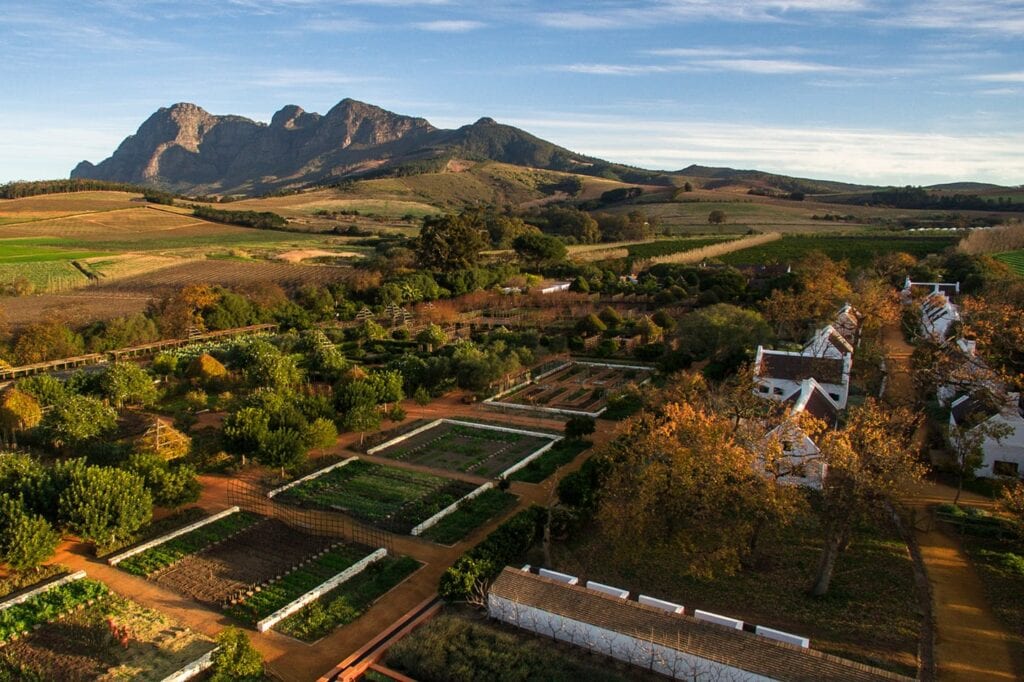
Sitting in the magnificent Franschhoek Valley in South Africa’s Western Cape, Grande Provence’s vines spread across 47-acres of top wine-growing soil, with rugged mountains overlooking from nearby. This is heartland South African wine country at its finest. The history of the estate tells of freedom found and fortunes made, of valour and fruitful ventures. The architecture speaks of Cape Dutch and French Huguenots and the Art Gallery is considered to be one of the most highly regarded galleries in the Cape with a reputation for showcasing some of South Africa’s finest established and emerging artists. Grande Provence lets you gain an authentic cultural, historical and ecological experience of what it means to own a wine farm in the Cape Winelands.
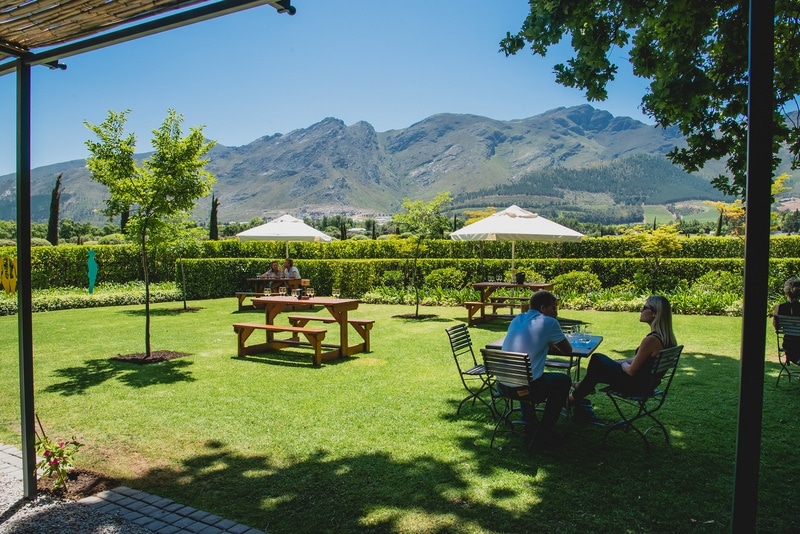
Waterford Estate is situated in the picturesque Blaauwklippen Valley, in the world-renowned Stellenbosch region. Focussing on sustainability, Waterford works diligently to ensure the preservation of the environment as it runs side by side with the farming of the property. Only using half of the property for wine farming, the rest is used to protect the sensitive, and highly unique, fauna and flora of the Cape region. Most famous for their Wine Drive Safari, the experience offers one the chance to taste their award-winning wines amongst the vineyards of their origin. All this while being expertly guided through all the aspects of what makes this area so biologically diverse and viticulturally unique.
